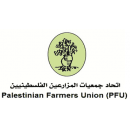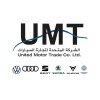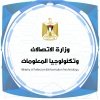Code of Conduct Consultancy
الوصف
Integrated Market Development Program across the Occupied Palestinian Territory”
Terms of Reference
Code of Conduct Consultancy
Background & Introduction:
The Palestinian Farmers Union (PFU) in partnership with OXFAM is implementing a project entitled “Integrated Market Development Program across the Occupied Palestinian Territory” that is funded by SDC and DANIDA and aims to contribute to a resilient, sustainable, and equitable agricultural growth. The project is implemented by Agriculture Development Association (PARC), Economic & Social Development Center (ESDC), Palestinian Farmers Union (PFU), and UWAC. The SDC-DANIDA project is a four-year large-scale agricultural market development program in the West Bank and Gaza. The program aims to operate at two levels: at the sectoral level to facilitate agricultural market system changes and specific value chains level. Three inter-related outcomes will be targeted: (1) Market-based interventions and facilitation result in improved quality and increased market share. (2) Agriculture sector and its key sub-sectors attract and create more income opportunities and empowerment for women and youth. (3) The internal and external operating environment becomes more conductive for agricultural sector, reducing barriers, and creating opportunities.
CONTEXT AND BACKGROUND
One of the most important features of the agricultural sector in Palestine is the presence of a relatively large number of individuals, institutions and agencies working to serve this sector, especially since the Israeli occupation in 1967. This sector played a basic role in economic development and its contribution to the GDP reached advanced rates; in fact, at one point, it reached 20%, and was considered a safe haven for employment and job opportunities, especially for women. However, agricultural sector growth has been on the decline for many years now. During the period 2013 and 2018, the share of agriculture in the GDP decreased to 4.27% , at a value of $ 525 million, of the total GDP of $12.27 billion in 2017 (compared to 20% in the 1980s). According to the Palestinian Central Census figures in 2014, the number of workers in the agricultural sector in West Bank and Gaza reached nearly 83,500 workers, before 12,800 workers lost their work in 2015. The rate of decline of workers who are active in the agricultural field increased between 2016-2018, with an estimated 59,900 workers in agriculture in 2016, before declining in 2017 to 54,200 workers, and about 51,000 at the end of last year.
The decline in the agricultural sector can be attributed to a number of different factors. However, the most important challenges facing the agricultural sector can be summarized as follows:
- Israeli procedures and policies
- Lack of government interventions to support and develop the agriculture sector during the last 25 years
- Lack of funding directed to develop and protect the capabilities of this sector.
- The need for policies, laws and procedures that contribute to protect agricultural sector. Perhaps the issue of income tax on farmers, especially small farmers, is the best proof of that.
Despite its decline, the agricultural sector is still of great importance to Palestinian economic growth and food security. There are several active parties in the agricultural sector, but the most important relevant authorities in the agricultural sector include: (1) governmental sector, (2)large and small farmers and agricultural producers, (3) agricultural cooperatives, (4) agricultural councils, (5) non-profit companies, and (6) private sector companies that manufacture and supply agricultural supplies and services.
In general, the agricultural sector suffers from large dispersion and overlaps between different parties and a great incompatibility between the various parties operating in the agricultural sector. In order to enhance the working relationships between relevant parties in the agricultural sector, it is necessary to find common ground between all these parties, clearly defining the roles and responsibilities of each. Therefore, it is of the upmost importance that a unanimously agreed upon code of conduct is developed, which includes most, if not all, of the relevant parties in the agricultural sector.
In particular, the code of conduct is needed to improve the relationship between large investors and small-scale producers. There is a lack of healthy relationship between large investors and small-scale producers due to an inactive fair competition regulation. In general, large investors tend to immensely influence small-scale producers’ business as they are the ones who control the entire value chain, and usually forcing small-scale producers out of competition. In fact, the largest investors have even more or less monopolizing the market, further straining any kind of relationship between both sides. To improve the relationship between these parties, it is important for them to work in complementarity and cooperation, rather than through dominance and control. The Fair Competition Council (which represents both large investors and small-producers and includes Federation of Industries, Pal-Trade, PFU, The Peasant’s Union, and the Ministry of Agriculture and Ministry of Economy) encourages fair competition and market regulation. The FCC has the ability to coordinate in-depth discussion between both parties and facilitate the needed Code of Conduct that will regulate the relationship of all relevant parties.
PURPOSE OF THE CONSULTANCY
The consultant will be responsible for developing a code of conduct that governs the relationship between all working parties and those related to the agricultural sector in Palestine, including the private sector, large and small investors, large and small-scale producers, and relevant governmental bodies (mainly Ministry of Economy and Ministry of Agriculture). The final code of conduct will be a binding document for all parties and use to improve the relationship between large investors and small-scale producers. In the end, the code of conduct should be used to encourage large investors and small-scale producers to work in complementarity to one another and in cooperation, thus strengthening their relationship.
CONSULTANCY OBJECTIVES
- Conduct research to identify relevant parties to be covered by the code of conduct.
- Conduct interviews with various producers, investors, governmental bodies, such as the Ministry of Agriculture and Ministry of Economy, as well as relevant private sector institutions.
- Meet with focus groups to discuss the topic and identify agreed upon concepts to be included in the code of conduct.
- Develop code of conduct that will be agreed upon by representatives of the various authorities related to the agricultural sector.
PLAN AUDIENCE AND USE OF FINDINGS
PFU will use the code of conduct developed by the consultant as a set of guiding principles with provisions and articles that consecrate values of integrity, principles of transparency, and accountability of relevant parties in the agricultural sector in Palestine. The code of conduct will be used to help relevant parties (both in the private sector and governmental bodies) carry out their daily work and responsibilities in the spirit of harmony and cooperation at the highest standard. The final code of conduct will be shared, discussed and approved by all relevant parties. It will provide all stakeholders with guiding principles to positively govern their relationship. The outputs of this consultancy will be utilized by PFU to strengthen the relationship between relevant parties in order to strengthen the agricultural sector and encourage support for small-scale Palestinian farmers.
CONSULTANCY QUESTIONS
-
- Who are the relevant parties to be covered by the code of conduct?
- What are the dynamics of the current relationship between relevant parties? How can it be strengthened?
- What are the most important topics that should be addressed in the code of conduct?
- What policies are in place in regard to this situation? What missing policies are needed?
- How can the code of conduct be developed so that all relevant parties unanimously agree on it?
- How can this document be disseminated in a clear and concise manner?
METHODOLOGY AND ACTION
The following methodology will be applied in carrying out the consultancy as outlined:
- Determine the relevant parties to be covered by the Code of Conduct.
- A desk review of existing literature on the history and current power dynamics situation in the agricultural sector. The consultant should highlight past and current instances that impact strengthening the agricultural sector. He/she should also review and elaborate on past and current interactions that showcase power dynamics and analyze strengths, weaknesses, opportunities, and threats in the relationship.
- Conduct meetings with relevant private sector institutions, large and small-scale producers, and large and small-scale investors, and governmental bodies to gather information about the reality of the working relationship between the parties (primary information).
- Identify flaws in the relationship and make recommendations for improving the relationship on a just and reasonable foundation.
- Summarize relevant findings based on desk review, research, and interviews.
- Conduct meetings with focus groups to discuss the topic and draft of the proposed code of conduct.
- Recommend and elaborate on needed relevant policies regarding the implementation of the Code of Conduct as agreed by all relevant parties, thus making the document viable.
- Hold two workshops in the northern and southern governortaes (West Bank and Gaza) to present the Code of Conduct and have it signed by represetnatives of the various authorities related to the agricultural sector, making it a binding documents for all relevant parties.
All activities undertaken during the period of this consultancy will be in full coordination and cooperation with the Fair Competition Council (FCC). All research, meetings, and development drafts of the code of conduct will be shared with FCC for their input.
DELIVERABLE
Code of conduct including a clear narrative of the guiding principles related to responsibility, transparency, and accountability of all relevant parties in the agricultural sector. The code of conduct should aim to help these parties perform their daily work and responsibilities at the highest standard and provide good governance in their work. The goals of the code of conduct could be summarized as follows:
- Develop clear milestones and specific standards for integration and cooperation among various stakeholders operating in the agricultural sector for optimal performance of the sector.
- Promote integrity among the relevant parties working in the agricultural sector, including individuals, institutions, and companies.
- Motivate accountability for the relevant parties in the agricultural sector by increasing transparency.
- Strengthen the relationship between relevant parties in the agricultural sector through effective participation in setting priorities and holding those responsible accountable.
- Lobby public authorities to strengthen preventive measures against the manifestations and images of corruption in the sector.
- Increase compliance with relevant applicable laws and procedures.
- Limit subjectivity, individual perceptions, and personal interpretations of various decisions by highlighting limitations and restrictions that may not be crossed.
The Code of Conduct must be submitted to PFU in both English and Arabic.
TIMEFRAME
The consultant will have 5 months to undertake the above-mentioned tasks including desk and field research. The various drafts of the produced materials will be reviewed by PFU staff and FCC members and feedback will be provided to the consultant.
MANAGEMENT
The commissioning manager of the consultancy will be PFU executive Director. The consultant will submit action plan including detailed methodology prior to starting data collection. PFU executive Director will provide necessary technical support for the development of the methodology and tools and review all produced materials.
REQUIRED SKILLS
- A team of consultants or a consultant with very good knowledge of the agricultural sector in the West Bank.
- Proven experience in developing codes of conduct.
- Expertise in quantitative and qualitative data collection and analysis.
- Previous experience with organizational procedures, approaches, and operations.
- Proven analytical skills with ability to prepare sound professional documents.
- Previous experience in undertaking complex research and presenting findings in a comprehensive manner.
- Similar consultancies with recognized organizations.
- Excellent command of reading and speaking English.
- Excellent English and Arabic reporting skills.
- Desired: previous experience in the related topic.
The technical offer should include:
- A cover letter of no more than 2 pages introducing the consultant and how the skills and competencies described above are met, with concrete examples (CV, experience including type of task, employer, project title, location, achieved outputs). The cover letter should also reflect the number of days to complete the assignment, daily rate and total financial offer (cost). The cover letter should also indicate consultants’ availability for the proposed period.
- An outline of no more than 6 pages of the proposed process and key considerations including:
- Key considerations.
- Proposed outline methodology.
- Proposed actual number of days, timeframe.
FINANCIAL PROPOSAL
The Financial proposal should contain the following information:
- Budget breakdown; prices should be valid for 60 days from date of submission.
- The submitted offers should be in US Dollars.
- In case of companies, they need to be able to provide VAT exempt invoices. In case of individuals, they need to be able to issue payment requests where PFU will deduct 10% of total contract value in accordance with Palestinian Taxation department & laws.
- Prices include all types of expenses such as transportation per-diem, calls, … etc
The remuneration is to be paid based on the following milestones:
50% Upon submitting the first draft of the Code of Conduct
50% Upon satisfactory completion of the final draft (agreed upon by all parties) the Code of Conduct
Acceptance: Award of a proposal does not imply acceptance of its terms and conditions. PFU reserves the option to negotiate on the final terms and conditions.
Please submit the proposal (technical & financial offer) and requested documents in separate and sealed envelopes to the Palestinian Farmers Union Headquarter (al-Bireh, close to the representative office of Netherlands) no later than the end of the day on 24/09/2020.
For any questions, feel free to contact Abbas Milhem at PFU’s head office: 02 240 0792
مكان تنفيذ الخدمة
رام الله والبيرة
موعد الإنتهاء
24, Sep, 2020
شارك هذا العطاء


















